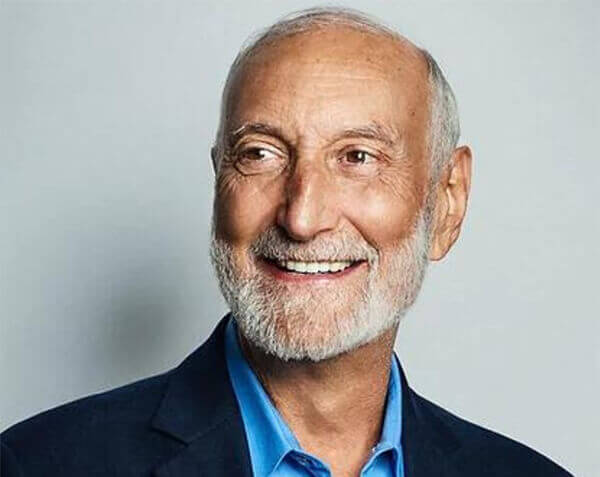By Dr. Michael Klaper
February is designated as “Heart Month” – which, for most people, conjures up images of Cupid’s arrows and valentines. To physicians, however, the term often makes us think of hearts in trouble – most often from putty-like plaques of oxidized cholesterol that develop in the walls of the arteries in the heart, the all-too-common disease of “coronary atherosclerosis.” These plaques spawn blood clots that can stop the blood flow to the heart muscle fibers, (a heart attack or “myocardial infarction”) – which causes one death in the U.S. about every 30 seconds.
Often, as the heart arteries narrow, they become unable to deliver sufficient blood to the heart muscle during exertion, like walking up a flight of stairs or running for a bus. Then, the owner of the heart feels a painful, crushing pressure in the middle of the chest, often radiating down the left arm or up into the jaw, known as “angina pectoris.” People with angina describe it as a dreadful experience, “like the hand of Doom has its grip around my heart.”
During medical school, I was taught – and most physicians still believe – that the cause of the artery-clogging is basically unknown (mostly “bad genes” from your parents) and that the disease is “relentlessly progressive,” meaning that once the artery-clogging starts, nothing can hold it back, and reversing and melting away the plaques was considered an impossibility. In my early years of medical practice, when a patient presented with angina, I had to fight the urge to run the other way, since I really didn’t know how to help them. I would immediately refer her or him to the cardiologist, trying not to let hopelessness show in my voice, since I knew what awaited them.
Most cardiologists believe that, though statin drugs may help somewhat, the only really effective treatment for clogged arteries is to place a wire mesh stent in the artery at the site of the worst blockage, or to perform a coronary artery bypass procedure, where the patient is connected to the “heart-lung” machine (the bypass pump), their heart is stopped, their chest is sawed open and a vein from their leg is grafted onto the surface of the heart arteries – a painful, expensive and inevitably risky procedure. All too often, both the patient and the doctor are left perplexed and disheartened in a few years when the patient – who continues to eat the Standard American Diet, filled with meats, dairy, oils, sugars, and processed foods – presents with yet another blockage, complete with the return of angina or, worse, a heart attack, often a lethal one…
So, I was overjoyed and buoyed with hope when I read of the studies of Dr. Dean Ornish (1) and Dr. Caldwell Esselstyn (2) showing that a diet of whole plant foods, with plentiful (and frequent!) dark green vegetables, free of oils and excessive fats, can not only stop the onslaught against the artery walls but can actually melt away the plaques and heal the arteries. Such a powerful example of “Let food be thy medicine!” This has proven to be true and a whole-food, plant-based diet is the most powerful tool I have that can actually promote reversal of this fearsome disease.
Now, one of the greatest joys of my medical practice is encountering a patient with angina who has been told that a stent or bypass graft is their only choice – and then celebrate with them as the plant-based diet and positive lifestyle heals their arteries and their angina fades away. I have received numerous pictures over the years from former angina patients standing proudly on the top of a mountain to which they have hiked – a feat that would have been impossible before fully embracing the healing powers of plants.
If you have any concerns about the health of your arteries, and, especially if you are showing any signs of artery blockage – angina pectoris, legs that become white, blue or painful when you walk, or transient losses of vision or speech – then, please contact one of the physicians at PlantBased Telehealth and let us work with you and help you reverse your artery disease, reclaim your health, and fill your February’s with Cupids and roses, once again.
(1) Dr. Dean Ornish Program for Reversing Heart Disease by Dean Ornish, M.D.
Intensive Lifestyle Changes for Reversal of Coronary Heart Disease
Dean Ornish, MD; Larry W. Scherwitz, Ph.D.; James H. Billings, Ph.D., MPH; et al
JAMA. 1998;280(23):2001-2007. doi:10.1001/Jama.280.23.2000
Pischke, C. R., Scherwitz, L., Weidner, G., & Ornish, D. (2008).
Long-term effects of lifestyle changes on well-being and cardiac variables among coronary heart disease patients.
Health Psychology, 27(5), 584–592. https://doi.org/10.1037/0278-6133.27.5.584
(2) Prevent and Reverse Heart Disease by Caldwell Esselstyn, M.D.
Resolving the Coronary Artery Disease Epidemic Through Plant‐Based Nutrition
Caldwell B. Esselstyn Jr. MD, et. al. Preventive Cardiology Volume 4, Issue 4 Fall 2001 Pages 171-177
